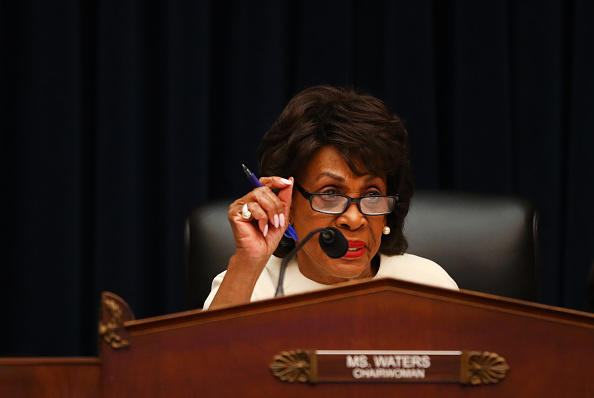Less than a month after Facebook released additional details about its cryptocurrency, Libra, U.S. Democratic lawmakers have asked the company to put its plans on hold.
On Tuesday, the U.S. House Financial Services Committee — headed by Representative Maxine Waters — wrote a letter to Facebook’s top executives. Other representatives who signed the letter included Reps. Carolyn Maloney, Lacy Clay, Al Green, and Stephen Lynch.
The lawmakers wrote:
“We write to request that Facebook and its partners immediately agree to a moratorium on any movement forward on Libra — its proposed cryptocurrency and Calibra — its proposed digital wallet. It appears that these products may lend themselves to an entirely new global financial system that is based out of Switzerland and intends to rival US monetary currency and the dollar. This raises serious privacy, trading, national security and monetary policy concerns for not only Facebook’s over 2 billion users, but also for investors, consumers and the global economy.”
In a report released last month, Facebook described Libra as a “stable currency built on secure and stable open-source blockchain, backed by a reserve of real assets, and governed by an independent association.”
That means Facebook doesn’t plan to have total control of Libra. Instead, the company will have a single vote in Libra’s governance along with the other founding members of the Libra Association. That includes Visa, Uber, and Andreessen Horowitz — each of which has already invested at least $10 million into Libra already.
However, that doesn’t mean the concerns of lawmakers are unwarranted. In fact, Facebook has a lot to answer for before it should be allowed to assemble what is essentially a global currency.
Democrats on the House Financial Services Committee ask @facebook to halt their plans to launch a cryptocurrency —> pic.twitter.com/8NGZ1xHj4t
— Frank Thorp V (@frankthorp) July 2, 2019
Perhaps one of the most obviously concerning factors in Facebook’s newest venture is its digital wallet, Calibra. The site is meant to essentially handle Facebook’s cryptocurrency and ensure that your Libra payments don’t get mixed up with Facebook data.
However, Calibra’s Approach to Consumer Data Privacy is questionable. The policy states that account information or financial data won’t be shared with Facebook or any third party consumer — except in “limited cases.”
“The limited cases where this data may be shared reflect our need to keep people safe, comply with the law, and provide basic functionality to the people who use Calibra,” the policy states.
Here’s the thing: Facebook doesn’t have a great track record with security or data.
The company is still recovering from the Cambridge Analytica Scandal and other privacy issues. Calibra’s own policy states that Facebook can share account information and data. The “limited cases” that Facebook refers to are left fairly wide open.
Within the letter, lawmakers critique Facebook’s own white pages, saying that there’s still not enough public information about intent, roles, potential use, or security of Libra and Calibra.
“If products and services like these are left improperly regulated and without sufficient oversight, they could pose systemic risks that endanger U.S. and global financial stability,” the lawmakers wrote. “Because Facebook is already in the hands of over a quarter of the world’s population, it is imperative that Facebook and its partners immediately cease implementation plans until regulators and Congress have an opportunity to examine these risks and take action.”
There’s really no legitimate reason for a big tech company to create its own global currency. Lawmakers across the world need to turn an eye onto Facebook and place moratoriums on its project before any type of regulation would be nearly impossible to implement.

